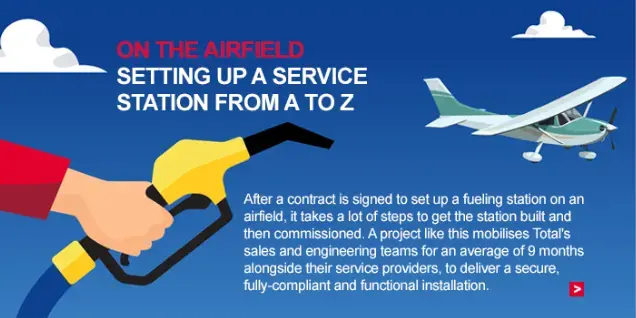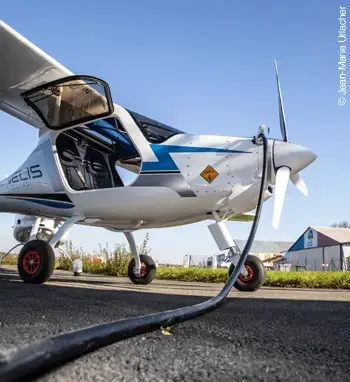Aviation’s future depends on its ability to take up current environmental challenges. To do this, TotalEnergies is developing its Sustainable Aviation Fuel (SAF) offering - fuel made from used cooking oil or animal fats from the circular economy. Rolled out at Le Bourget airport in June, this innovation is a true leap towards reducing the sector's CO2 emissions
Sustainable air fuel: a decarbonisation lever for aviation
According to the International Civil Aviation Organization (ICAO), sustainable aviation fuels will weigh in at over 50% of the aviation decarbonisation effort by 2050, with the remaining percentage coming from operational and technological aircraft optimisation. "For the aviation world, which is in the crossfire because of its environmental impact, SAF is a major driver in the implementation of real-world solutions to reduce greenhouse gas emissions," says Aurélien de Roussel, Commercial Director for Aviation at TotalEnergies. To produce this fuel, used cooking oil is collected and processed at the La Mède site in Provence and at Oudalle in Normandy. The resulting biomolecule, called HEFA (Hydrotreated Esters and Fatty Acids), is then blended at varying ratios - as high as 50% - with conventional fuel. "This pure biomolecule delivers a reduction in CO2 emissions of up to 90% compared to a fossil equivalent. In addition to achieving the same technical certifications as conventional aviation fuel, the SAF produced by TotalEnergies is certified by an independent body, ISCC-EU, which validates all the sustainability criteria that allow us to meet our customers' needs. We’re also working from the logistics perspective with our new all-electric refuellers”. A major move that illustrates the climate roadmap spearheaded by TotalEnergies, which has been working on the SAF roll-out since 2014.
Refuelling with fuel from used cooking oil at Le Bourget airport
It is no coincidence that TotalEnergies made the decision to first distribute its sustainable aviation fuel at Le Bourget business airport. "Le Bourget is Europe's premier business airport and has fewer constraints than other airports where we operate: its fuel supply chain is simple and the necessary logistics and customs formalities take less time than other airports, where we are obviously working towards the same goal." In addition, business aviation is a particularly environmentally-sensitive segment of the airline industry and definitely has what it takes to finance the implementation of sustainable solutions, such as FAS. A dedicated biofuel tank has been available at Le Bourget since 1 June 2021: a high-performance installation that’s ahead of the French and European regulation schedule.
Price: a crucial issue for sustainable air fuel
So far, the only downside is the price of FAS. So that the price of this sustainable aviation fuel does not prevent its widespread use, TotalEnergies has decided to provide a blend with an adaptable SAF ratio. "It’s a new fuel, still produced in relatively small quantities compared to conventional fossil fuel, and therefore represents a significant additional cost for its users. It’s important for us to remain attentive and close-up to our customers to find the right balance between price and the SAF ratio incorporated," explains Aurélien de Roussel. This position is unique in the sustainable aviation fuel market, as most players have opted to impose their SAF ratio on their buyers. Ultimately, it is important to adapt to our customers’ demands and capabilities to maximise the use of this sustainable fuel at our airports, and consequently minimise CO2 emissions.


